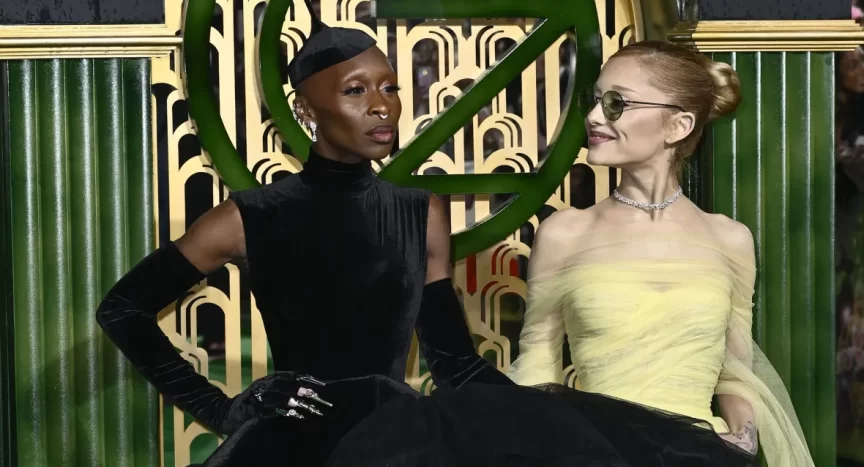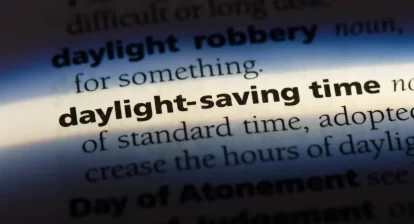Rumors that Cynthia Erivo made 15 times less than Ariana Grande for “Wicked” have been debunked, but pay disparities for Black women remain a reality.
As Taraji P. Henson told us nearly a year ago, there is a persistent pay disparity issue in Hollywood — and non-white actresses, regardless of their stature, are often on the losing end.
“I am just tired of working so hard, being gracious at what I do [and] getting paid a fraction of the cost,” said an emotional Henson during a Dec. 2023 interview with Gayle King. “I am tired of hearing my sisters say the same thing over and over. You get tired.”
It’s a common narrative many Black women know all too well, so it’s unsurprising that many found themselves up in arms amid rampant and unsubstantiated rumors that Cynthia Erivo only made $1 million compared to Ariana Grande’s reported $15 million salary for “Wicked.” However, those rumors were proven false on Tuesday, when, in response to growing speculation on social media, a spokesperson for Universal, the production studio behind the blockbuster movie musical, released a statement to The Hollywood Reporter and other outlets, addressing the controversy.
“Reports of pay disparity between Cynthia and Ariana are completely false and based on internet fodder. The women received equal pay for their work on ‘Wicked,’” read the statement, which was reportedly corroborated by “multiple sources familiar with the situation.”
According to Deadline, the rumor inexplicably originated on a Reddit thread. It remains unknown how much “Wicked’s” lead actresses actually earned for their work on the already-acclaimed two-part film, which reportedly had a pre-marketing production budget of $320 million and is currently dominating the holiday box office. Nevertheless, the furor over the alleged pay disparity, however unfounded, reflects a very real and persistent pay gap for Black women that is well-documented in Hollywood and extends to countless other industries.
“I have a career that’s probably comparable to Meryl Streep, Julianne Moore, Sigourney Weaver,” said Viola Davis in 2018, as previously reported by theGrio. “They all came out of Yale, they came out of Juilliard, they came out of NYU. They had the same path as me, and yet I am nowhere near them. Not as far as money, not as far as job opportunities, nowhere close to it.
“People say, ‘You’re a Black Meryl Streep … We love you. There is no one like you,” the EGOT winner continued. “OK, then if there’s no one like me, you think I’m that, you pay me what I’m worth.”
That same year, Octavia Spencer made headlines when she revealed that fellow actress Jessica Chastain had helped her negotiate equal pay for a project the two were working on together. As reported by Variety, Chastain, already a staunch advocate for closing the gender pay gap in Hollywood, hadn’t been aware of the equally persistent wage gap between white and non-white actresses until Spencer brought it to her attention.
“I told her my story, and we talked numbers, and [Chastain] was quiet, and she had no idea that that’s what it was like for women of color,” Spencer recalled during a panel at that year’s Sundance Film Festival.
Moved to action, Chastain helped Spencer negotiate a “favored nations” contract, in which the two Oscar winners would be paid comparable rates.
“She had been underpaid for so long. When I discovered that, I realized that I could tie her deal to mine to bring up her quote,” Chastain later tweeted in response to Spencer’s admission. “Men should start doing this with their female co-stars.”
Further elaborating on the issue, Spencer tweeted, “I should clarify that I am making 5x my salary because Jessica stood with me. I don’t know what or if it cost her anything as far as her rate, I just know she stood with me, and I am eternally grateful.”
Gestures like Chastain’s are rare, and while favored nations contracts are becoming more common in Hollywood productions — potentially including Erivo and Grande’s agreements for “Wicked” — they are still not a regularity. Neither do they compensate for a system in which Black talent is systematically devalued, as Henson, an Oscar and Emmy nominee and Golden Globe and SAG Award winner, pointed out when discussing her own experiences with pay disparities.
“I hear people go, ‘You work a lot,’” she continued. “I have to. The math ain’t mathing. When you start working a lot, you know you have a team. Big bills come with what we do. We don’t do this alone … there’s a whole entire team behind us [and] they have to get paid.”
Breaking down how even actors earning a seemingly exorbitant Hollywood salary — for example, $10 million — typically end up netting a third of that amount after both taxes and team are paid, Henson emphasized how being paid less to start with undermines any opportunity to get ahead.
“I am only human, and it seems every time I do something and I break another glass ceiling, when it’s time to renegotiate, I am at the bottom again like I never did what I just did,” she said. “And I’m tired.”
If acclaimed actresses are struggling to be paid their worth, their experiences reflect those of non-famous Black women across industries. Despite enrolling in college at higher rates, on average, American Black women with full-time employment are paid 69 cents for every dollar made by white, non-Hispanic men — and Lean In estimates that gap is slightly wider for Black women with bachelor’s degrees, who earn 36% less than equally educated white men, or 64 cents on the dollar. Latinas and Native American women fare even worse, at 58 cents on the dollar.
Further, Black women typically make 12% less than their white female counterparts. The disparities faced by too many women of color are amplified annually by initiatives like Black Women’s Equal Pay Day — and yet, at the current rate of advancement, pay equity isn’t projected to be achieved until 2227. In the meantime, “a Black woman starting her career today stands to lose $884,800 over the course of a 40-year career if we don’t close the gap,” reports the National Women’s Law Center.
With these very real-world dynamics at play, the uproar around Erivo’s seeming pay disparity, however inaccurate, was no doubt triggering for millions of Black women still working twice as hard to earn approximately a third less. While Erivo currently may be “defying gravity” in the biggest fantasy film of the year, we can’t deny the gravity of pay disparity and its repercussive effects on Black women’s careers, families, communities and mental health. To paraphrase Davis: Pay us what we’re worth.
!function(){var g=window;g.googletag=g.googletag||{},g.googletag.cmd=g.googletag.cmd||[],g.googletag.cmd.push(function(){g.googletag.pubads().setTargeting(“has-featured-video”,”true”)})}(); ( () => { ( ( cb ) => { window.tpd = window.tpd || {}; if ( true === tpd.cmpReady ) { console.log( ‘[TPD][Brid] CMP was already ready, running player.’ ); cb(); return; } let tpdCmpReadyListener = () => { console.log( ‘[TPD][Brid] CMP ready event fired, running player.’ ); window.removeEventListener( ‘tpd:cmpCb’, tpdCmpReadyListener ); cb(); }; window.addEventListener( ‘tpd:cmpCb’, tpdCmpReadyListener ); } )( () => { let s = document.createElement( ‘script’ ); s.src = ‘https://player.target-video.com/player/build/targetvideo.min.js’; s.async = true; let target = document.getElementById( ‘Brid_21951’ ); target.parentElement.insertBefore( s, target ); window._bp = window._bp || []; window._bp.push( {“div”:”Brid_21951″,”obj”:{“id”:”41122″,”width”:”1280″,”height”:”720″,”stickyDirection”:”below”,”playlist”:”21951″}} ); } ); } )();
More must-reads:




